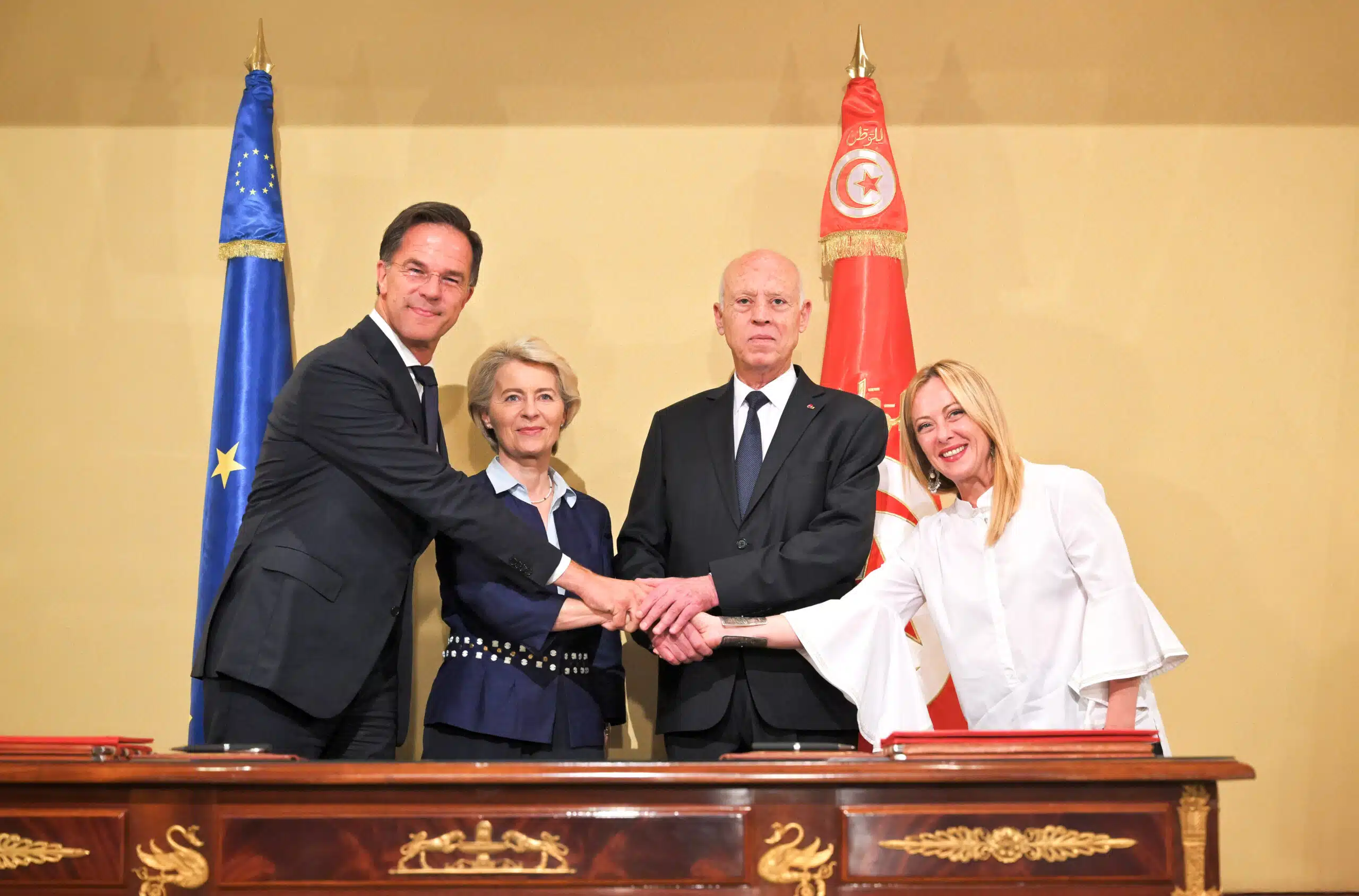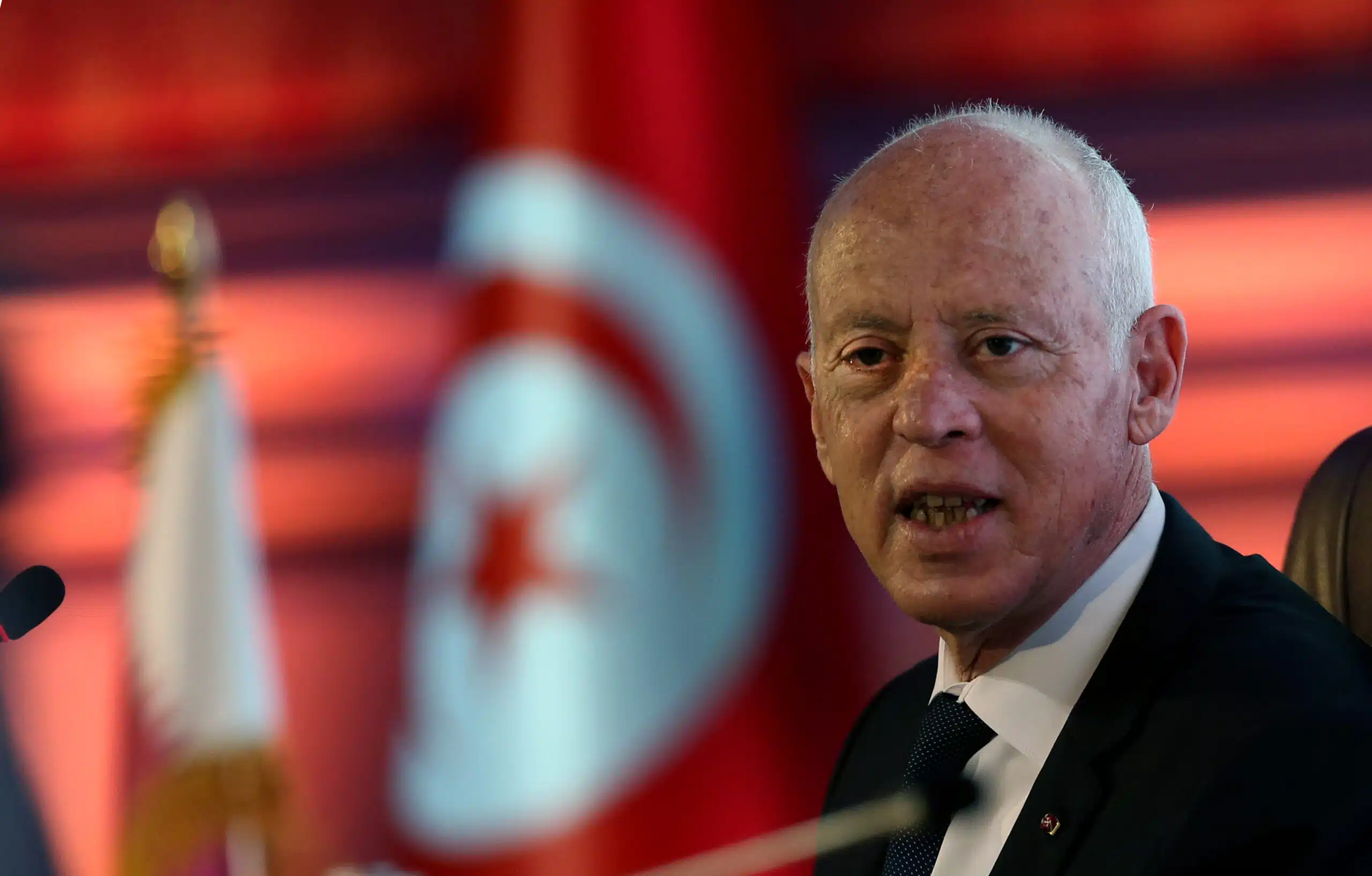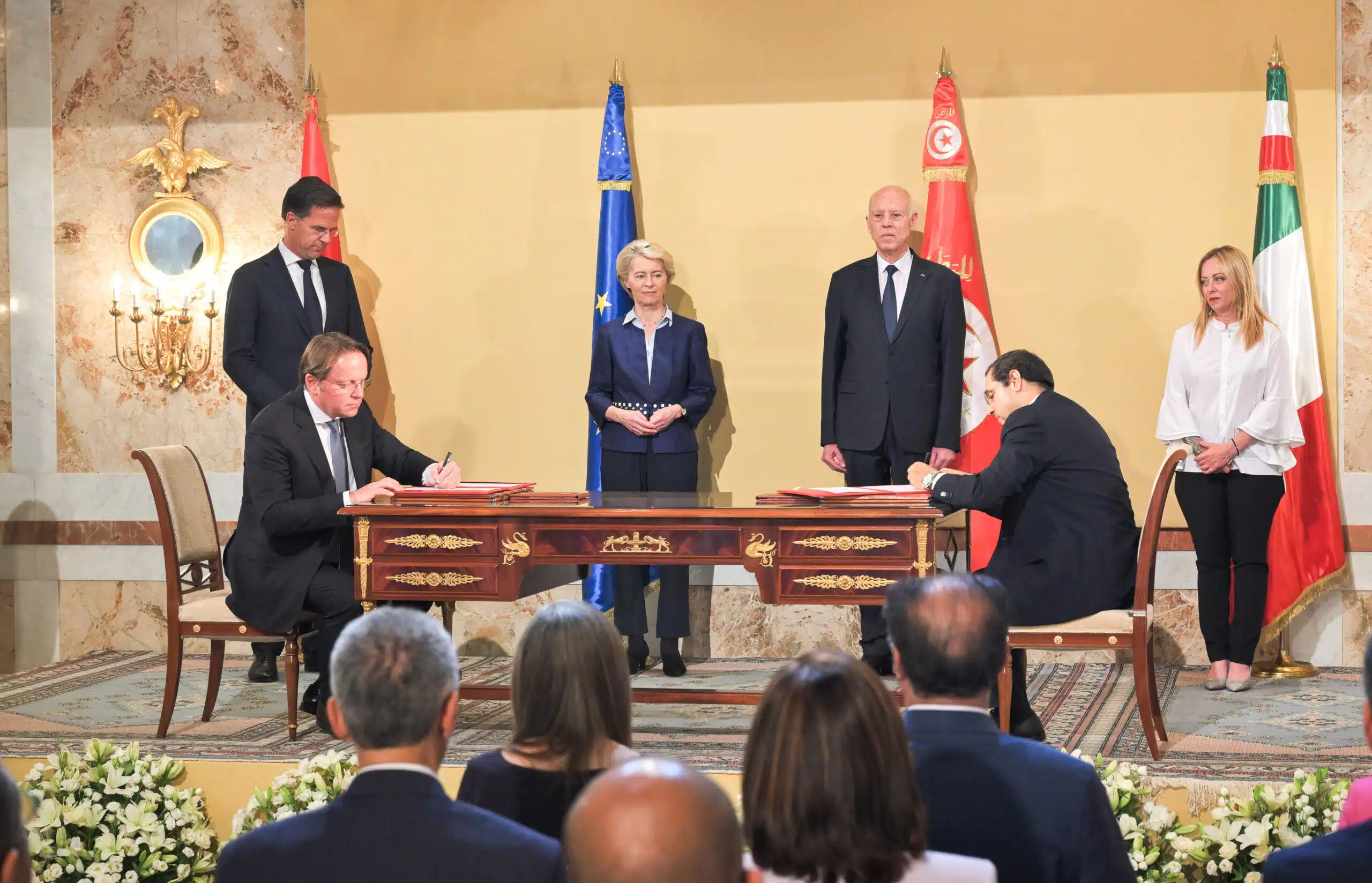Brussels – The EU Parliament continues its crusade against the controversial Memorandum of Understanding with Tunisia signed in July 2023 by the European Commission. After repeatedly doubting the legitimacy of its mandate, as well as its political significance, the Strasbourg hemicycle put to a vote a resolution in which it demands that the EU executive explain the recent decision to proceed with the disbursement of €150 million in support of Tunisian state coffers.
The resolution passed today (March 14) with 243 votes in favour, 167 against and 41 abstentions. Thus, MEPs call on the Commission to clarify how it has deemed Tunisia to meet the criteria on fundamental values, as stated in its action plan, where it speaks of “satisfactory progress” justifying the budget support disbursement.

The 150 million under indictment was released last March 4 and is part of the first of the five pillars of the Comprehensive Partnership entered into with President Kais Saied, the one on macroeconomic assistance. They are the first part of a substantial €1 billion package, of which, however, the remaining 900,000 is tied to the release of the maxi-loan that the International Monetary Fund had negotiated with Saied earlier and which remained frozen due to the Tunisian president’s refusal to accompany it with a series of unpopular economic reforms.
It is not only the disbursement itself that raises doubts, but also how it was done. In fact, the European Parliament questions why the Commission chose to disburse the amount in a single tranche instead of a gradual disbursement based on targets or concrete objectives achieved, thus precluding the possibility of “suspending further disbursements in the event of a clear erosion of fundamental values. “The deterioration of the rule of law in Tunisia, taken in stride by President Saied, has already been denounced by the EU Parliament in a resolution dating back to March 2023.

Green Group MEP Tineke Strik
Also infuriating the rapporteur of the text voted on in the chamber today, Dutch MEP Tineke Strik, is the European Commission’s failure to observe the inalienable right of parliamentary scrutiny. Already in a letter sent on January 25 by the Green Group to the Foreign Affairs Committee (AFET) of the parliament, Strik and her colleagues complained that they had “never received a conclusive answer from the EU executive” to the continuous requests for information on the monitoring of respect for the rule of law, democracy, and human rights in the framework of the agreement with Tunisia and on the possible application of some form of conditionality to authorize funding.
The Commission’s decision to use an emergency procedure for the disbursement of the 150 million, despite certainly not lacking sufficient time to use the standard procedure from July 2023 to the present, “demonstrates the failure to respect parliamentary scrutiny,” as MEPs put wrote down in the resolution.
The conditions agreed upon for the payment of the 150 million
A European Commission spokeswoman clarified to Eunews that “the payment was made after the commission positively assessed Tunisia’s achievement by January 2024 of the mutually agreed conditions in the Financing Agreement.” Specifying further that these conditions related to “progress in the implementation of macroeconomic policy in support of stability, sound management of public finances, transparency, and budgetary control.”
In the Financing Agreement signed with Tunis, there would then be three additional special conditions: the publication of the Budget Law for 2024 and its annexes, the adoption of the Public Finance Management Action Plan by the Council of Ministers, and progress in the macroeconomic discussion.
English version by the Translation Service of Withub






